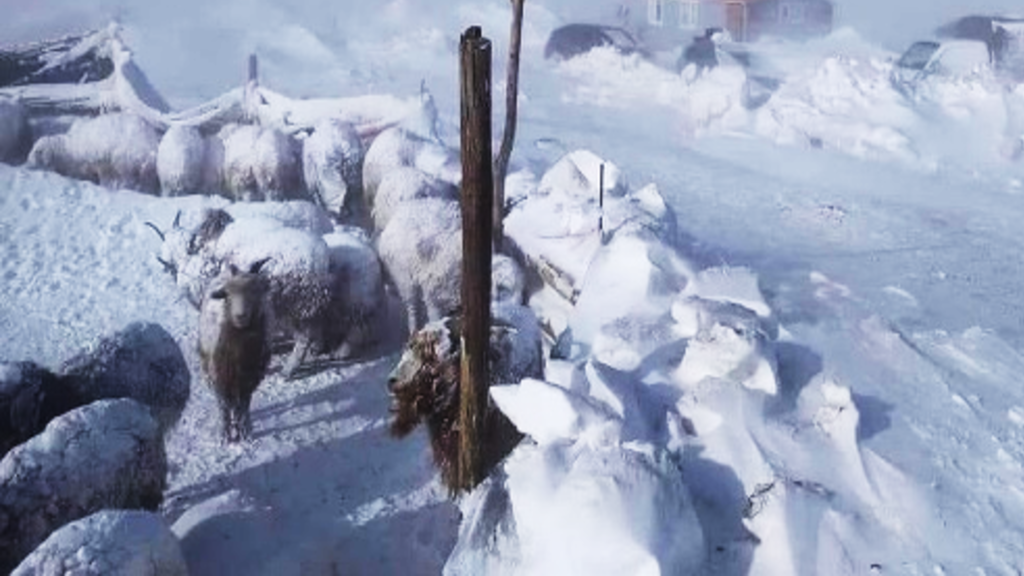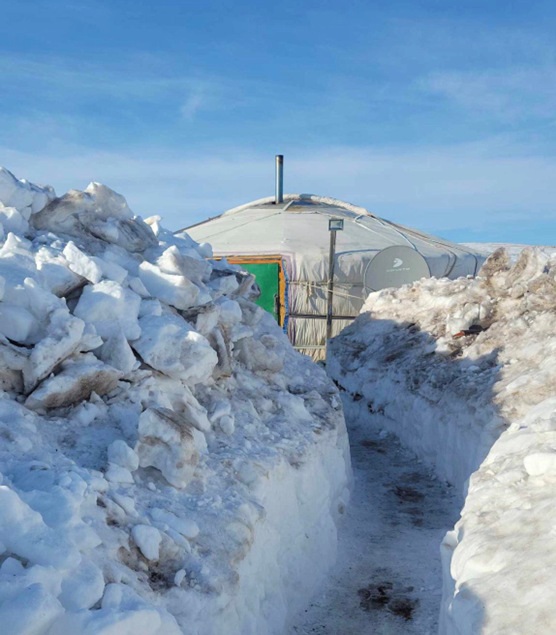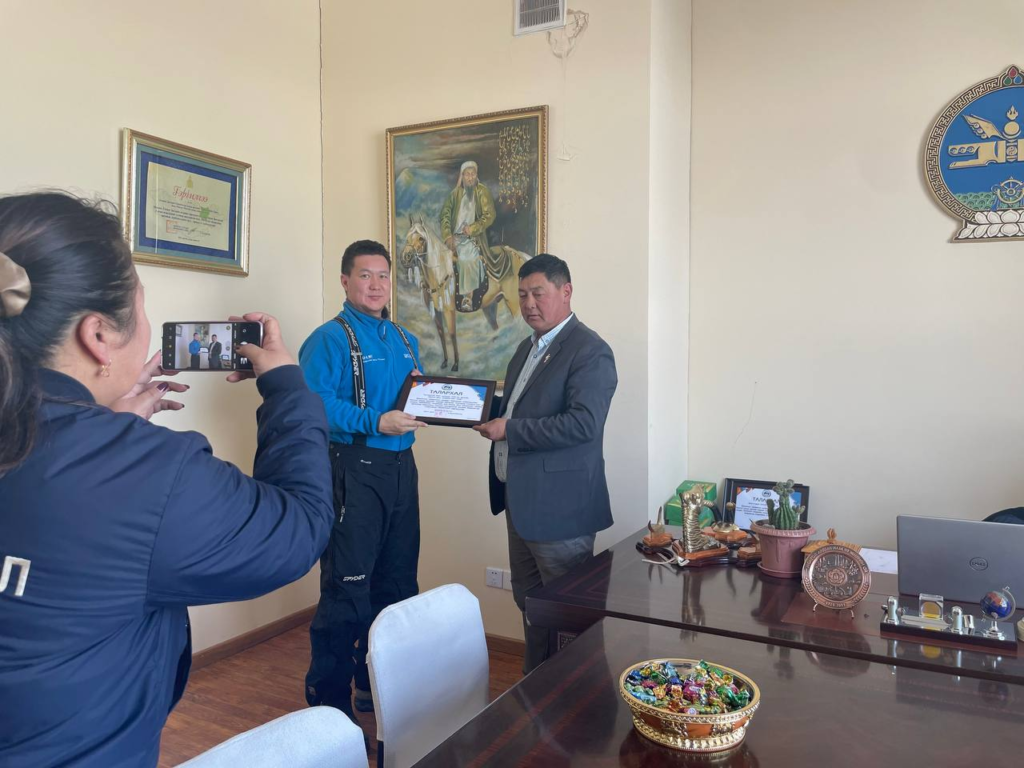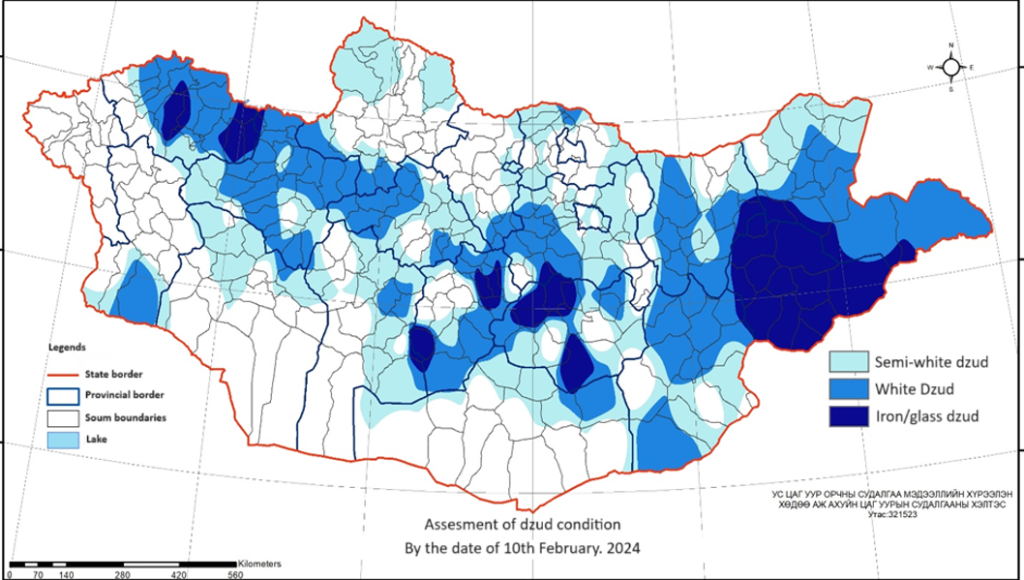The National Agency Meteorology and the Environmental Monitoring (NAMEM) of Mongolia reports that as of February 2024, a total of 80% of the country is in a “Dzud” weather disaster, with Iron / Glass Dzud hitting regions covering 58 soums, across 13 provinces.
According to the National Emergency Management Agency (NEMA) report on the 26th of February 2024, the loss of livestock reached 2.3 million, an 86% increase compared to the same period last year.
What is Dzud?
Mainly occurring in steppe regions of central and east Asia, Dzud is a winter weather phenomenon in which deep snow, severe cold, or other conditions render forage unavailable or inaccessible, leading to high livestock mortality. Dzud is considered a disaster due to its effects on livestock populations that support the livelihoods of a third of Mongolia’s population.
Not just leading to a disastrous number of livestock loss, Dzud can also threaten human lives as it makes travel conditions and transportation impossible. Food, drink, fuel, medicine, and other necessities quickly become unreachable for a period beyond the regular supply reserves of households. The devastation it brings can have a turning impact on household livelihoods, as well as local and national economies.

Hooves Dzud, each with their own extreme conditions and harsh weather affects.
Each type of Dzud brings its own extreme level of conditions that challenge herders beyond their provisions for already harsh Mongolian winters. Although not regular in occurrence, scientists documented changes in regional climate in the past 60 years and predict that Dzud will likely increase in frequency and magnitude with future atmospheric changes.
How does Dzud affect animals?
With this year’s disaster hitting especially hard, Mongolia is expected to see more snowfall throughout the beginning of March. With this, animal mortality will reach devastating numbers due to the lack of feed and water, combined with the extreme cold, as herders exhaust their winter reserves.
Records warn that a tough spring is likely to follow these harsh Dzud conditions, with storms, blizzards, and floods causing a late arrival of fresh grass. Herders will need intense strength as they start to approach offspring season and prepare for already weakened survivor herds following the Dzud disaster.


How does Dzud affect people?

Herder communities and their families are physically affected by the Dzud with road blockades making it difficult to reach water, food, fuel, and to stock up on supplies. Additionally, being cut off from medical and emergency services can cause serious situations for those who need it.
With a shortage of cash on hand, many herders will try to restock these necessities by exploiting an advance sales payment for their upcoming cashmere harvest. Burdening to their already decreased harvest in the spring, this will affect them financially during the cashmere season with a loss on actual market price.
Besides livestock and financial loss, herders will suffer from stress and mental well-being as an outcome of these tough conditions. Especially young herders, who need moral support to cope with the loss and devastation. In many cases, herders face a total loss of livestock that will likely force many to migrate to urban settlements, adding to the already overpopulated slums and poverty in the city.
How can we help?
The Mongolia government, managed by the State Emergency Commission, began immediate response to the disaster situation by making roads accessible, distributing hays, fodders for animals, and necessary relief to herders. However, despite government measures and aid from international donor organisations, more assistance in parallel is needed to reach and support all households to mitigate animal and livestock losses effectively.
Utilising knowledge and previous experiences from reports such as “Lessons from the Dzud” (co-written by SFA founder Batkhishig Baival), we are informed through science on how best to adapt and increase resilience in these disastrous situations. The report recommends that short-term aid relief should link to sustainable long-term development support. In line with the recommendations presented in this report, the SFA has begun initiating immediate aid for SFA herder organisations in the regions that have been hit hardest. Through organised coordination with local governments and herder communities, the SFA Mongolia team begun distributing vital animal feed and supplies this week to six SFA herder organisations spread across three soums in the north-eastern provinces.

SFA brand members and partners.

herder organisations in worst hit areas.
The SFA works with established herder organisations that consist of multiple herding families in a communal grazing area, supporting them in governance, capacity building, and participatory planning to bring benefits to their livelihood. Find out more about how we support herder livelihoods and more through our work and standards here.
Throughout the last week, we have begun raising funds internally with incredible support from SFA members and partners to look to purchase and deliver essential items, such as fodders, blankets for animals, salt, supplements, batteries, medicines, and milk supplements for newborn animals. These items are purchased from local suppliers at the province level and handed over to herder organisation leaders, ensuring efficient distribution to herders in need, as well as supporting local businesses.

who will distribute out to their member households.

Thank you to SFA Members & Partners
On behalf of our SFA herders and herder organisations, we would like to say a huge thank you to all our brand and retailer members, chain of custody participants and partners who have already reached out to us with amazing offers of support. Without your generous donations and joint efforts, we wouldn’t be able to support our herder households in working to overcome the Dzud disaster by providing much-needed moral support.
Ms Narantsetseg, head of the Yavin-Bulag herder cooperative, of Umnudelger soum Khentii Province, expressed profound gratitude for the aid received via video call to the SFA Mongolia & UK team:
“It is the first aid we receive for the entire soum. The cube feeds are crucial for this time. We are distributing them to co-op members and begging Mother Nature to turn the season soon. Thank you SFA for the aid!”

While initial relief efforts have garnered commendation from local authorities, the road ahead remains fraught with challenges. The SFA aid campaign is ongoing and calling members and other partners in the natural fibre industry for support. If you would like to get involved with our Dzud natural disaster plan and emergency fund, please contact info@sustainablefibre.org.
A Mongolian proverb says:
“It is worth helping with a single needle when in need, rather than a whole camel in time of prosperity.”

Tamir Bud
SFA COMMUNICATIONS OFFICER
29 February 2024

